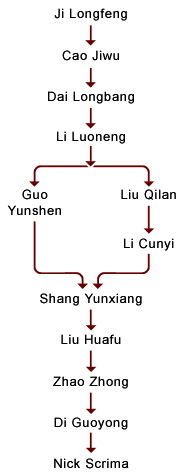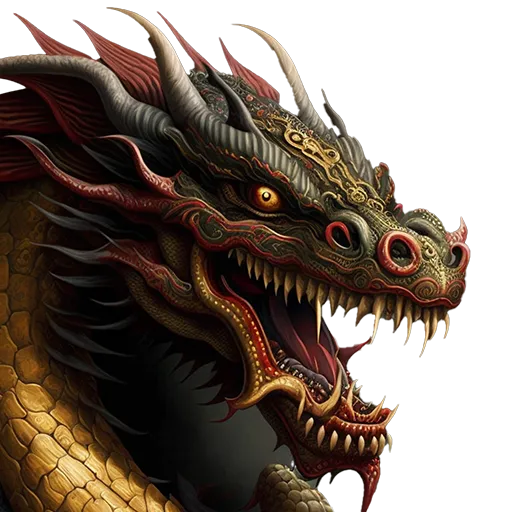Learn Kung Fu
With a history that spans more than 3000 years, Chinese martial arts emerged first as rudimentary techniques for survival and later developed into highly efficient skills. Known in the West as Kung Fu or Gong Fu, these arts evolved into many different styles. Other names used early in its history were Chuan Fa or Quan Fa, Chinese Karate, and Chinese Kenpo. Nowadays, the term Wushu is popular.
In our Wushu Guan, the martial arts hall, we teach traditional Northern Long Fist, which is often categorized as part of Shaolin Kung Fu. Our primary styles are Mizong Luohan (Labyrinth High Priest or Lost Track High Priest), and Ying Zhao Fan Zi, commonly known as Eagle Claw Kung Fu.
Benefits of Kung Fu
Regular practice in Kung Fu
- promotes physical fitness
- develops self-confidence
- nurtures self-esteem
- sharpens reflexes
- teaches practical self-defense skills
Learn Tai Chi
Among the many martial arts styles to come out of China is Tai Chi Chuan, also known as Taiji Quan. This is a great treasure, highly regarded for its therapeutic benefits. Tai Chi can be practiced by anyone, regardless of age, gender, or physical condition. The slow, rhythmical movements, coupled with deep breathing, are the distinctive features of its practice.
At our martial arts school we teach Yang Style Taiji Quan as well as Wu Style Taiji Quan. Yang Style is the most widely practice system around the world. We also teach many of the Compulsory Taiji Quan Forms developed in more recent times.
Benefits of Tai Chi
The practice of Tai Chi
- increases cardiovascular fitness
- restores vitality
- improves mental clarity
- teaches relaxation
- enhances balance
- promotes restful sleep
Learn Qi Gong
There are many different methods of Qi Gong. Also written as Qigong and Chi Kung, its practice incorporates both static and moving postures that are coupled with proper deep breathing techniques. In Static Qigong, certain fixed postures are held for a determined amount of time. In Moving Qi Gong exercises, arm movements and stepping can be incorporated.
Qi Gong is an integral part of Chinese martial arts, especially the Internal Systems of Taiji Quan, Xing Yi, Bagua and Liu He Ba Fa where Zhan Zhuang, or Standing Post, play an important role for developing proper structure.
In traditional Chinese medicine, your blood, breath, and energy are closely related, and their harmonious flow reflects your state of health and vitality. It is important to keep your body’s vital energy, or Qi (Chi), in balance to restore and maintain your health.
Nowadays, QI Gong is classified under three major categories:
- Medical Qi Gong
- Martial Qi Gong
- Meditative or Spiritual Qi Gong
These methods are often intermingled and aid one another.
Benefits of Qi Gong
When practiced regularly, Qi Gong exercises
- develop body awareness
- increase metabolic activity
- improve mental clarity
- promote deep relaxing breathing
- restore energy and vitality
- boost the immune system
- elevate one’s spirit
Learn Self-Defense
According to FBI data, in 2023 in the United States, there were over 1.8 million assaults where hands, fists, or feet were used. In the same year, over 375,000 women and over 104,000 men were victims of rape or sexual assault in the United States. There are other alarming statistics which involve the use of weapons such as guns and knives.
The fact is that every day, more people die from crime than in armed conflicts or wars. And while violent assault, both physical and sexual, are the primary reasons for learning self-defense, there are many instances of violence that involve psychological assault and verbal abuse. Knowing how to defend yourself in an unprovoked attack has become ever more of a necessity. Learning fundamental self-defense techniques and how to strike the vital points are instrumental in disabling an attacker.
Benefits of Self-Defense
Developing situational awareness is important for self-preservation. Perceiving danger and knowing how to de-escalate a situation are just as necessary as the physical techniques you learn to cope with an attacker.
Learn Xingyi Quan
The internal martial arts of Xingyi Quan, also written as Xingyiquan and Hsing I Chuan, are said to have their origins in the Song Dynasty (1103-1141). The style was developed based on the use of the spear and, over time, split into the three major styles. These styles are Hebei Xingyi Quan, Shanxi Xingyi Quan, and Henan Xingyi Quan. In our school we teach the Hebei Style.
Known as the style of the 5 Elements or Wu Xing Quan, and the 12 Animals or Shi Er Xing, Xingyi is concise, dynamic, and economical. There is nothing flashy about the style. It is fast and extremely effective in close-in fighting. Kicking is typically aimed at low targets and used in conjunction with hand techniques. Xing Yi Quan is most suitable for people who don’t wish to engage in the physical requirements of Long Fist styles or might find Taiji Quan too slow.
Fa Jin, the release of explosive force in Xingyi Quan, is like a piece of rattan when it is bent. Rattan is pliable, resilient, yet sturdy; it flexes and snaps back with great force. Like rattan, Xingyi looks rigid on the surface but is pliable, lively, and energetic.
Nei Gong, Internal Training, is an integral aspect of the art, making Xing Yi an excellent style to learn for both self-defense and for nourishing one’s health.
My first exposure to Xingyi, although brief, was with Master B. P. Chan in 1983, who introduced me to the fundamentals of the system. I also studied Xingyi sword and two-person sword with Master Tao Pingxiang, and I continued to learn various aspects of the art from different teachers. My most profound and extensive Xingyi training has been with Master Di Guoyong of Beijing. His knowledge and skill are outstanding, and it is a privilege to study with him.
Note: Xing Yi training is only available through private lessons.
Benefits of Xingyi Quan
Xing Yi is an excellent in-fighting method that sharpens the mind and builds focus. It strengthens the internal organs, improves posture and nurtures your Qi, or Vital Energy. It is an excellent method for experienced martial artists who wish to move away from hard styles but wish to continue their martial arts journey.
Lineage

Other Styles & Programs
Schedule
Tuesday
Private Lessons
8:00 am – 12:00 pm
Beginning Kung Fu
6:00 pm – 7:00 pm
Self-Defense
7:00 pm – 7:30 pm
Advanced Kung Fu
7:30 pm – 8:30pm
Green Belt & Up
Thursday
Private Lessons
8:00 am – 12:00 pm
Beginning Kung Fu
6:00 pm – 7:00 pm
Qinna
7:00 pm – 7:30pm
All Levels
Sparring
7:30 pm – 8:30 pm
Green Belt & Up
Saturday
Stretching
9:00 am – 9:30 am
All Levels
Kung Fu Weapons
10:30 am – 11:30 am
All Levels
Shuai Jiao
11:30 am – 12:30 pm
All Levels
